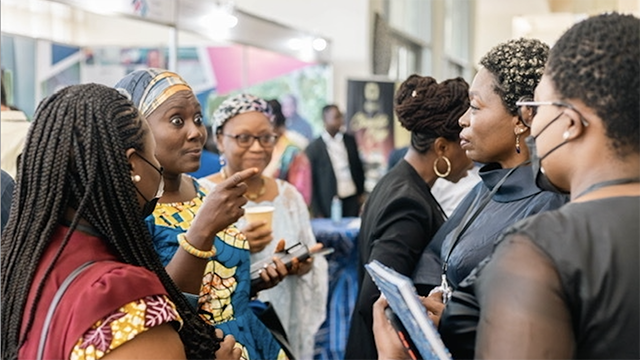Dr. Agnes Binagwaho is the vice chancellor of the University of Global Health Equity. She will speak in the Our Planet, Our Health track at Spotlight Health. Below she offers her recommendations for US entities who provide aid to sub-Saharan Africa.
Africa was a continent once deemed “hopeless” by the US media. Sub-Saharan Africa, in particular, was condemned to an endless cycle of poverty, starvation, and tragedies. Yet in the past 10 years, the region has undergone major transformations thanks to home-grown solutions and outside support. Sub-Saharan Africa’s rise is due to interconnected factors including growing economies, efficient governments, and focused foreign development support, through both governmental and non-profit investment.
The US government’s support has contributed greatly to post-colonial sub-Saharan African development in a multifaceted way. It has transcended classic concepts of foreign aid such as truckloads of food rations and shipments of medicine. Through programs run by USAID and the State Department, as well as nongovernmental organizations, private sector investment, and regional military and strategic security efforts, the US has contributed to Africa’s human and economic development.
These efforts have not only been publicly popular and brought together the traditionally divided political parties in the US, but they have also proven effective in sub-Saharan Africa. In recent years, US efforts have improved the health of populations in the region and contributed to the declines in malaria, tuberculosis, HIV/AIDS, and stunting. They have also facilitated increases in improved sanitation facilities, pregnant women seeking prenatal care, and school enrollment and completion. Since the mid-1990s, mortality of children under five has been cut in half from 17 percent to 8 percent, and extreme poverty in Africa has decreased from 61 percent in 1993 to 43 percent in 2012, a decline of nearly one percentage point a year for two decades.
Despite these successes, there have been numerous issues and setbacks over the course of US investment in sub-Saharan Africa. Some of the most fragile states in the world are in this region. Extreme poverty creates instability and challenges that have ripple effects on continental and global security. In an increasingly globalized world, the negative impacts of these conflicts are exacerbated by porous borders, human and drug trafficking, and weak or corrupt governments. They have obvious ramifications for development and investment on the continent, not least of which are the millions of migrants, internally displaced people, and refugees that result from this instability.
Strengthening governments and their systems, while doing fair business in Africa with the aim of human development and middle-class growth, will allow nations to grow economically and use their taxes for inclusive programs that leave no one behind. This will also allow the US to safeguard its own national and regional security interests, let the US private sector to do profitable business, and permit African nations to invest in areas such as health, education, and community development. However, to bridge the gap between the current state of the US-African partnership and the progress necessary to be able to be fully self-supporting, this process needs to be accompanied by private-sector investment and integrated approaches to global security.
Six of the 12 fastest growing economies in the world are located in sub-Saharan Africa. By learning from the successes of the recent past and translating them into local capacity-building efforts for growing a strong middle class and inclusive human development, the US can serve its humanitarian, security, and economic interests while supporting sub-Saharan Africa and the private sector’s economic efforts. Where there is potential for prosperity, it is wise to cultivate the partnerships of the past to move forward together into a future of equity, partnership, and growth. By interacting with the economic sector — both private and government-supported — the US could boost the African potential for future mutually profitable partnerships while promoting health, education, and human development as a whole. With this support, the future of Africa will be brighter than ever, benefitting both US and African interests.
The views and opinions of the author are her own and do not necessarily reflect those of the Aspen Institute.


